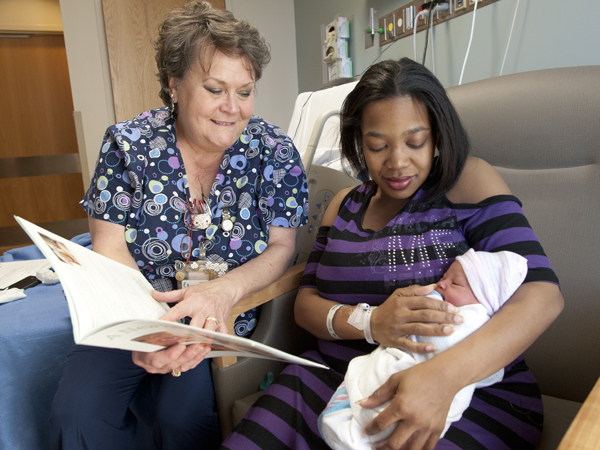|
Long before she graduated with a medical degree from the University of Mississippi Medical Center, Dr. Nina Washington already was familiar with the hallways of the Medical Center. Growing up with lupus meant Washington was a regular fixture at Batson Children's Hospital to see Dr. Linda Ray, a pediatric rheumatologist. Yet when she entered medical school, she was convinced she wanted to be an obstetrician/gynecologist. "That didn't work out so well," she said. "But then I fell in love with pediatrics. The more I learned about my own personal disease, the more the field of rheumatology became more interesting to me. I felt because of the personal experience I had, I would be able to put myself in my patient's position. "I guess it's pretty divine how I got involved." After UMMC, Washington finished her pediatric residency at the University of Chicago Comer Children's Hospital and then a fellowship at the Lucile Packard Children's Hospital of Stanford University. And in August, 2013, she returned home to become the second pediatric rheumatologist on UMMC's staff - working alongside her former physician, Ray. Washington said she returned because she knew she could serve a need in Mississippi, one that many other states also are facing. "The need is everywhere," she said. "I think the need hasn't been serviced as well simply because of the lack of access to a trained pediatric rheumatologist." The specialty of her field also means it's not one easily recognized to the average resident, but families with children who have these specific issues understand all too well the importance. "We take care of children with arthritis, with connective tissue diseases such as lupus. We take care of children who have inflammation of their blood vessels like vasculitis, or those who have inflammation in their eyes - uveitis," said Washington. "I would say we're a sub-speciality pediatrician, because the illnesses we tend to treat involve the whole body." A native of Jackson, Washington said it's a privilege to work at the hospital where she received help. "I often try to remind myself when the hours are getting long and the consults start piling in, it's a privilege to be able to have received the training that I have and the knowledge that I've learned about this field and to be able to use that to make my patients' lives better," she said. "It's so rewarding when you have a child who comes in and they're limping. And then three months later, they're not limping any more. It's an honor, I would say."
|











